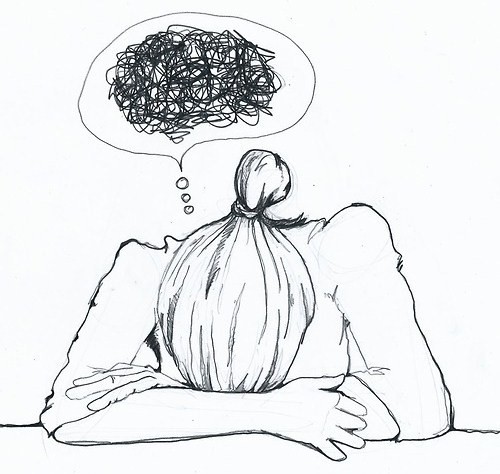
Triggered by the innocence of everyday living, it creates a paralyzing weighted stomach, like brick settling into a stagnant and hopeless formation. Accompanied by incessant jitters, it leaves us running endlessly against the confines of society’s collective mind. It’s not just the intimidation of the to-do lists, but rather, an internal battle: all of the energy flooding from the body to brain, begging the question of the fundamental base of life. Stealing confidence, creating the simplest fears that terrorize today’s overworked, over-analytical mind, leaving a gaping desire for familiarity, and an impending sense of misplacement that takes authority, this is the age of widespread mental illness. This is the age of the broken.
We as a culture walk emotionlessly, quiet, unattached in our exterior. We care too much about people who care too little. We scrutinize the way we appear to strangers. We live life for the acceptance of others, and we do so at our own mental sacrifice. Specifically, in high school, the halls that act as a thoroughfare to emotional hardship corrupt today’s youth class after class as the process of growing up evokes a process that compromises our original identity.
For seniors Rachel Knesek and Bianca Peck, the struggle to succeed in a system that promotes emotional difficulty is all too real. They, for the purpose of this column, told their story and explained their battles with mental illness.
“I got [anxiety] after 6th grade because I was bullied a lot, even though I was homeschooled,” Peck said. “That’s when I noticed I had a lot of social anxiety. To this day, I always question whether people will like me.”
But the heavy sense of anxiety was not always the case for Peck.
“I didn’t get anxious when I was little,” Peck said.
This noted, Bianca battles a paradoxical mental war in her interaction with those around her.
“I can’t be alone, but at the same time when I’m with people I feel like someone is always going to hurt me.”
She puts up a wall that today’s millennial age knows too well. She exemplifies the way people today refuse to show vulnerability. Everyone is always about the hustle, and the likes, and the retweets, and the things that virtually add up to nothing. For Knesek, the internal struggle wages on in a similar manner.
“Anxiety started for me in fifth grade,” Knesek said. “Even today when I see my huge to do list, I don’t see individual to-dos. I see an overwhelming collective list of tasks.”
Although the academic struggle is a recurring problem for most students as the competition for class rank and test scores is dangerously grimy with jealousy and challenge constantly sleeping in the background of upperclassmen lives, Peck recognizes her anxiety’s origin stems from a more personal part of her life.
“My friends act as a major trigger in my life. All of my friends come to me with a lot of problems, and they expect me to put their problems before mine. Everything that’s going on in my life is on hold while they selfishly demand my counseling.” Peck said. “I’m like the rock in everyone’s life, and everyone assumes I basically can handle everything, but I can’t handle anything.”
But the girls remain emotionally taped together through their coping mechanisms.
“I was in the hospital for awhile and use coping skills that I learned from that experience,” Peck said. “ Sometimes I just sleep for 14 hours when I really need it. Sometimes I literally just can’t do life, so I allow myself to check out temporarily.”
Peck’s experience provides emphasis on the magnitude of what chemical imbalances can do to one’s overall health. Mental illness is real, and it’s current is the ultimate undertow. Just as Peck proves mental illnesses seriousness, she also emerges alongside Rachel as strong in their journey to recovery together.
“We usually just drive around, we jam, we eat a whole pizza and find the prettiest spot and to just talk it out,” Knesek said. “Even so, sometimes I’m just not motivated at all to do life.”
Despite the murmur of darkness heard faintly inside the two girls’ minds, they remain hopeful that the difficulty of now will pass once the freedom of college becomes a reality.
“If I could say one thing to my younger self about this it would be to keep your head up and stay strong. I know life is going to suck and you’re going to hate yourself and you’re going to want to die, but you’ll get through it,” Peck said.
The persistence of the girls evokes a sense of fortitude that is unparalleled. Survivors of mental illness are truly some of the toughest, most brave in society, but this tenacity is not achieved alone.
“I would say to my younger self to find your family earlier because it took me too long to confide in my family and my siblings for help,” Knesek said.
Interview conducted by: Madalyn Harris, Kenzie Ballard, and Lindsey Lightfoot

